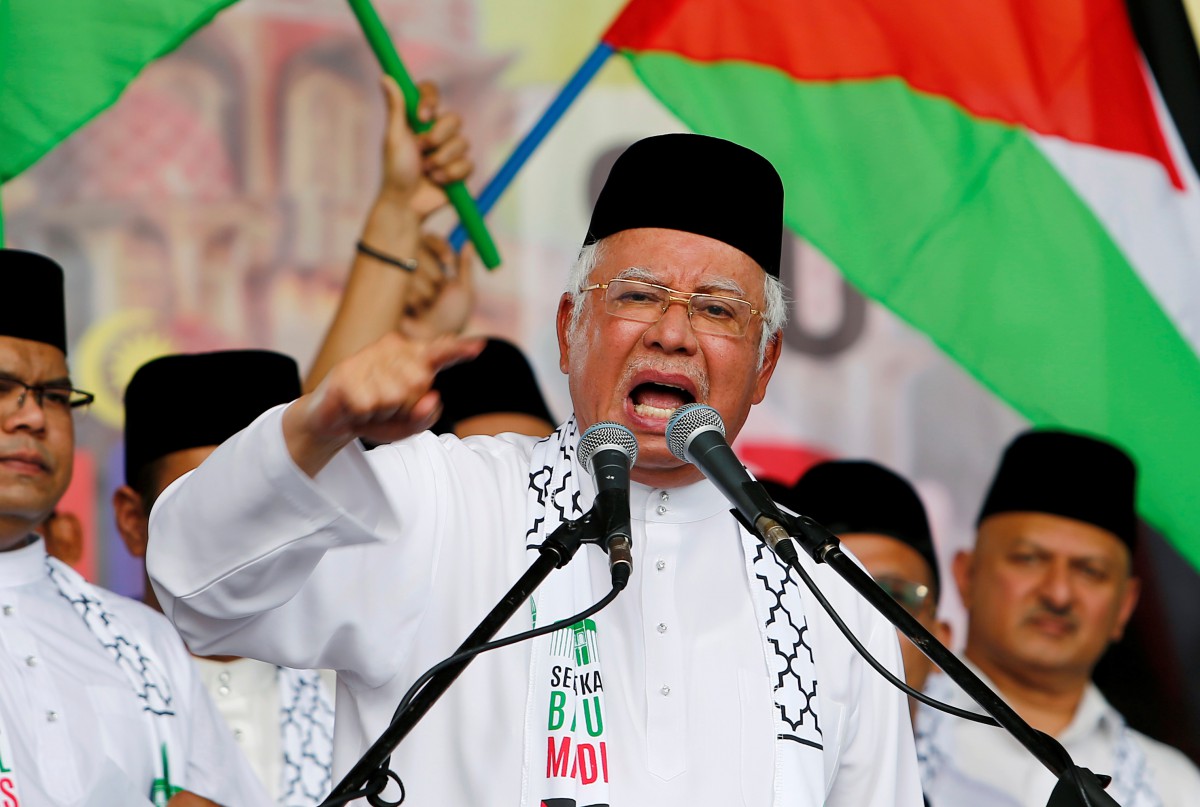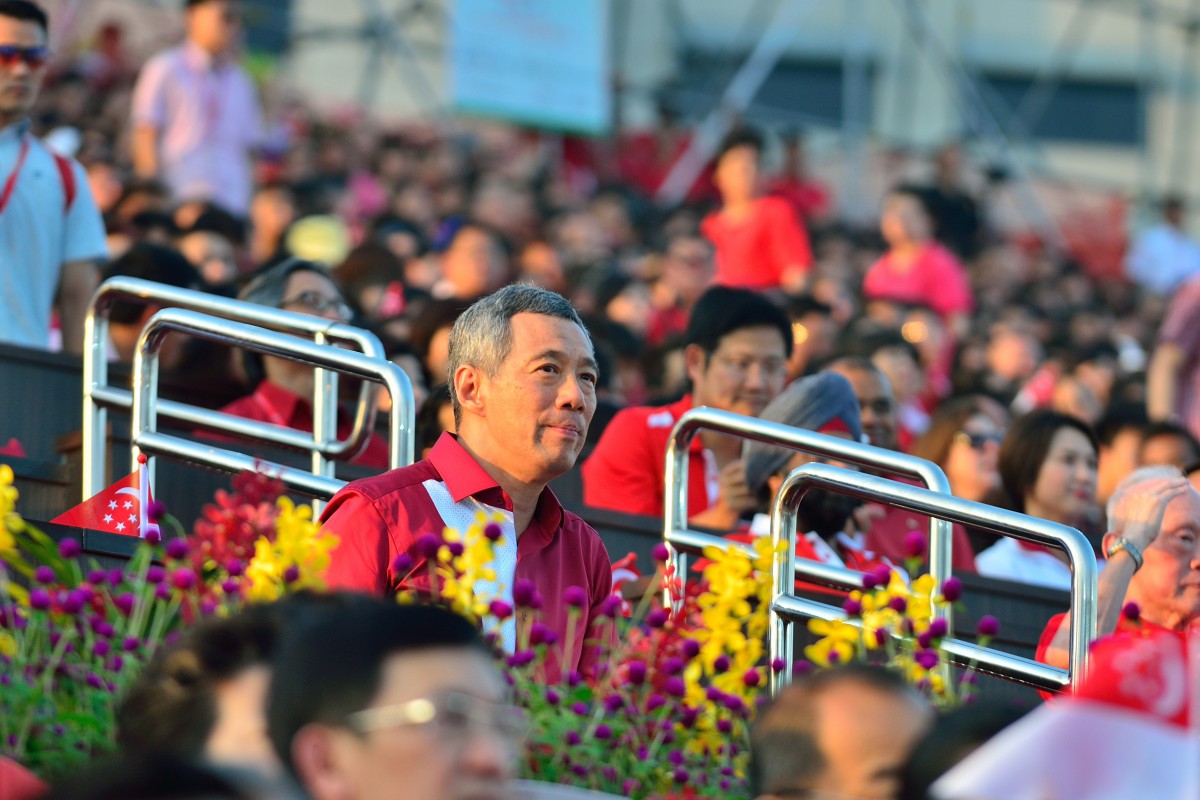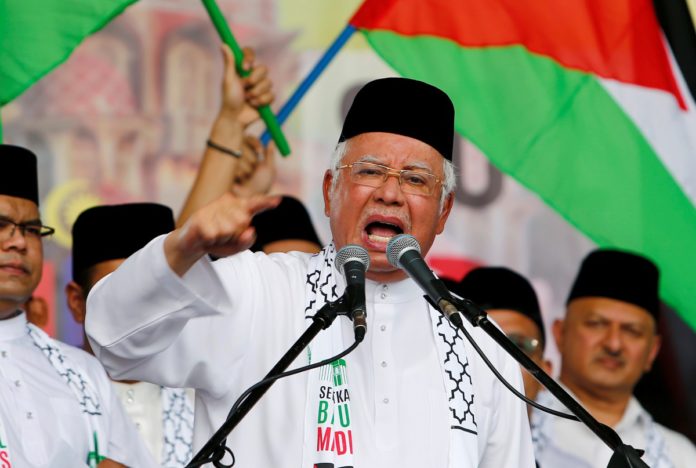OPPOSITION members and tech giants have expressed concern over Malaysia and Singapore’s plans to introduce new laws to counter fake news, fearing that the legislation of both countries was a veiled crackdown on dissent.
On Wednesday, the Malaysian cabinet approved a controversial Bill to counter fake news which will be tabled in parliament next week.
According to Channel News Asia, Minister in the Prime Minister’s Office Azalina Othman said the Bill sends the message that the government will not compromise when it comes to matters concerning public order and national security.
“This Bill was drafted for the benefit of the general public to protect the people from fake news and becoming victims of fake news,” she said. “However, the Bill does not restrict the right to freedom of expression of the people as provided under the federal constitution in any way.”
SEE ALSO: Hun Sen praises Trump’s Fake News Awards

Malaysian Prime Minister Najib Razak at a protest against the US declaration of Jerusalem as the capital of Israel. Source: Reuters/Lai Seng Sin
Prime Minister Najib Razak, whose administration was riddled with graft allegations, including the controversial 1Malaysia Development Berhad scandal, had earlier claimed to be a victim of online slander and “fake news.” Najib’s remarks came ahead of the looming general elections due before August this year.
The Star newspaper quoted Deputy Communications and Multimedia Minister Datuk Jailani Johari as saying any information related 1MDB that has not been verified by the Government is considered “fake news.”
“The Government views that other than the information that has been verified by the Government, all other information is deemed as fake news,” Jailani said in parliament on Wednesday.
Welcome to 1984. The Ministry of Truth shall determine what is true and what is not. pic.twitter.com/BSDCZvFNqi
— syahredzan (@syahredzan) March 22, 2018
Opposition MP, Raja Kamarul Bahrin Shah questioned whether the proposed fake news law was meant to silence critics of 1MDB, the multi-billion dollar sovereign wealth fund being investigated by prosecutors in six countries, including the US Department of Justice.
He said Jailani statement seemed to indicate this, making it seem that only 1MDB investigation findings of Malaysia’s Public Accounts Committee (PAC) would be considered verified information, according to Free Malaysia Today.
“This means what is not included in the PAC report would be accepted as fake news. This is the new law they are going to table next week,” he said.
“Currently there is a blanket embargo for MPs to stop them from speaking or asking questions about 1MDB. Now, with the new law, we can be arrested for speaking about 1MDB. This is a ridiculous situation that we are in.”
Singapore’s vulnerability
On Thursday, global tech giants including Facebook and Twitter expressed concern about a possible Singapore plan to bring in a new law to tackle the threat of fake news, saying sufficient rules are already in place.
Officials of Facebook, Twitter and Google, attended a parliamentary hearing on how to counter the threat that Singapore said it was particularly vulnerable to due to its size, its role as a global financial hub and its ethnic and religious mix.
They were among 79 people asked to speak in parliament over the eight days set for the hearing. The wealthy city-state is among the countries looking to introduce legislation, so far unspecified, to rein in fake news, a trend that has stirred concern that such laws could be used to exert government control over the media.

(File) Singapore Prime Minister Lee Hsien Loong looks on at National Day Parade 2012 in this picture taken in Aug 9, 2012. Source: Shutterstock
“We do not believe that legislation is the best approach to addressing the issue,” Alvin Tan, Facebook’s head of public policy for Southeast Asia, said in a written submission.
“Singapore already has a variety of existing laws and regulations which address hate speech, defamation and the spreading of false news.”
Singapore ranks 151 among 180 countries rated in the World Press Freedom Index of Reporters Without Borders, a non-government group that promotes freedom of information.
SEE ALSO: Malaysian minister claims Economist, WSJ, Guardian published ‘fake news’ on 1MDB
Lawmakers in the United States and Europe have called for probes into how Facebook allowed Cambridge Analytica to access data on 50 million users and use it to help the election campaign of U.S. President Donald Trump.
Microblogging site Twitter also shared concerns about Singapore’s plans.
“No single company, governmental or non-governmental actor, should be the arbiter of truth,” Kathleen Reen, Twitter’s director of Public Policy for Asia Pacific, said.
A parliamentary panel set up to consider possible measures, including legislation, drew 164 written responses from the public, a record for reactions to such a committee on any issue.
Many of the examples of fake news, cited in a Singapore government paper on deliberate online falsehoods published in January, came from abroad.
Additional reporting by Reuters
{“total”:27,”error”:””,”stumbleupon”:0,”linkedin”:0,”pinterest”:0,”google”:0,”facebook_total”:22,”buffer”:1,”twitter”:4,”vk”:0}





